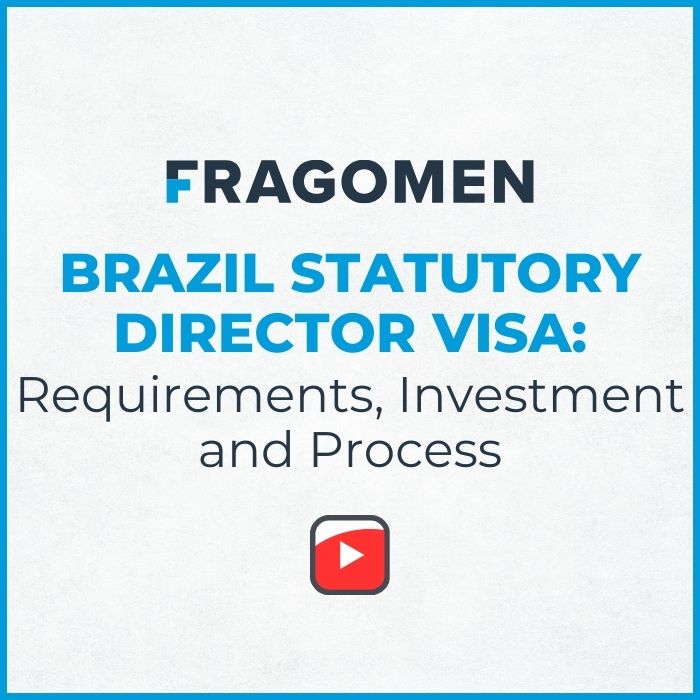
Country / Territory
Generally speaking, any non-citizen must demonstrate that he or she passes what is known as the 'character test' in order to hold or keep a visa. Section 501 also provides a discretionary power for the Minister to refuse or cancel a visa in cases where a person does not pass the test.
There are many grounds in which a non-citizen may fail the test; such as having a substantial criminal record, being associated with persons suspected of engaging in criminal conduct, having a conviction for immigration detention offences, past and present criminal or general conduct, as well as any risk that a person may pose to Australia in the future. Notably a criminal record is considered 'substantial' if a non-citizen is or has been sentenced to a term of imprisonment of 12 months or more. It does not matter if the sentence has been suspended.
Taking it in a new direction
On 11 December 2014, the former Minister for Immigration and Border Protection issued a new ministerial direction – Direction no. 65 - in relation to visa refusal and cancellation under s501. This direction introduced further situations in which a person will fail the character test. These include sexually based offences involving children, crimes under International Humanitarian Law and persons assessed by ASIO as a risk to national security.
Similarly, some existing elements of the test were strengthened under the new direction. Whereas previously there needed to be a ‘significant’ risk to Australia, the current position requires merely a risk. The provision in relation to cumulative sentencing was also tightened, in that a person is no longer considered of good character if they have received two or more terms of imprisonment, equal to 12 months or longer. This is a considerable change to the figure of 24 months which was in place prior to the new direction.
Though perhaps the most impactful amendment of all has been the mandatory cancellation reforms, which allow for visa cancellation without notice where non-citizens have been handed a full-time sentence for certain offences against the law of the Commonwealth, State or a Territory. A prison sentence of 12 months or more and convictions for sexual offences committed against children fall into this provision. Some non-citizens who are currently serving time in prison are also liable for visa cancellation under these reforms.
What has been the impact of this?
The area of visa cancellation has been a hot topic in the media of late. Reports of the deportation of various non-citizens, in most cases for one of the reasons outlined above, have dominated the Immigration landscape. This has led to high level talks between the Australian and New Zealand Prime Ministers in a bid to resolve what is fast becoming a contentious issue.
The Minister has a discretionary power to refuse or cancel a visa based on the character requirement, yet there are a large number of factors; such as the nature of the crime, the actual risk to Australia, the impact of visa cancellation on long-term residents, as well as the impact upon the non-citizen’s family members, which continue to make this a touchy subject.
If you would like to find out more about the character requirement or how these changes may affect you, please contact one of our professionals at Fragomen.
Country / Territory
Explore more at Fragomen

Podcast
Director Laxmi Limbani discusses how women are shaping the global space sector, the barriers they face and what is needed to support a more inclusive space workforce.

Media mentions
Senior Manager William Diaz outlines how immigration changes in the US and UK may affect workforce planning and mobility for the games industry in 2026.

Video
Director Fatima Aydin outlines Ireland’s roadmap for increasing minimum annual remuneration salary thresholds and the implications for employer workforce planning and compliance.

Blog post
Senior Associate Ruben Fiedler outlines the new employer information obligation under Section 45c of the German Residence Act, explaining when it applies, what employers must provide to third-country nationals recruited from abroad and the practical steps needed to ensure compliance from 1 January 2026.

Podcast
Partners Cosmina Morariu and Rahul Soni examine how immigration and global mobility trends are influencing workforce strategy across the luxury sector.

Blog post
UK Government Affairs Strategy Director Shuyeb Muquit compares the EU’s new Visa Strategy with the UK’s post-Brexit immigration system and assesses what the UK can learn to remain competitive for global talent.

Media mentions
Partner Karolina Schiffter highlights that new electronic signature rules may delay work permit procedures for foreign workers in Poland.

Blog post
Senior US Consular Manager Brian L. Simmons outlines how evolving US visitor visa rules, travel bans and new financial requirements may affect attendance at the 2026 FIFA World Cup and how early fans must prepare.

Video
In this video, Brazil Managing Partner Diana Quintas explains the statutory director visa, outlining who qualifies, key compliance considerations and what employers and directors should consider when planning appointments or changes to board leadership.

Fragomen news
Fragomen’s "Immigration Guide for the UK Tech Sector" introduces visa options available for those working and recruiting in the tech sector.

Media mentions
Europe Managing Partner George Koureas highlights the growing role of immigration in shaping global business and managing strategic risks.

Blog post
Senior Associate Tayyaba Karim and Immigration Consultant Khadija Begum examine key UK immigration developments affecting the tech sector at the start of 2026, including higher sponsorship costs, new Skilled Worker English language requirements and emerging policy reforms shaping workforce planning.

Podcast
Director Laxmi Limbani discusses how women are shaping the global space sector, the barriers they face and what is needed to support a more inclusive space workforce.

Media mentions
Senior Manager William Diaz outlines how immigration changes in the US and UK may affect workforce planning and mobility for the games industry in 2026.

Video
Director Fatima Aydin outlines Ireland’s roadmap for increasing minimum annual remuneration salary thresholds and the implications for employer workforce planning and compliance.

Blog post
Senior Associate Ruben Fiedler outlines the new employer information obligation under Section 45c of the German Residence Act, explaining when it applies, what employers must provide to third-country nationals recruited from abroad and the practical steps needed to ensure compliance from 1 January 2026.

Podcast
Partners Cosmina Morariu and Rahul Soni examine how immigration and global mobility trends are influencing workforce strategy across the luxury sector.

Blog post
UK Government Affairs Strategy Director Shuyeb Muquit compares the EU’s new Visa Strategy with the UK’s post-Brexit immigration system and assesses what the UK can learn to remain competitive for global talent.

Media mentions
Partner Karolina Schiffter highlights that new electronic signature rules may delay work permit procedures for foreign workers in Poland.

Blog post
Senior US Consular Manager Brian L. Simmons outlines how evolving US visitor visa rules, travel bans and new financial requirements may affect attendance at the 2026 FIFA World Cup and how early fans must prepare.

Video
In this video, Brazil Managing Partner Diana Quintas explains the statutory director visa, outlining who qualifies, key compliance considerations and what employers and directors should consider when planning appointments or changes to board leadership.

Fragomen news
Fragomen’s "Immigration Guide for the UK Tech Sector" introduces visa options available for those working and recruiting in the tech sector.

Media mentions
Europe Managing Partner George Koureas highlights the growing role of immigration in shaping global business and managing strategic risks.

Blog post
Senior Associate Tayyaba Karim and Immigration Consultant Khadija Begum examine key UK immigration developments affecting the tech sector at the start of 2026, including higher sponsorship costs, new Skilled Worker English language requirements and emerging policy reforms shaping workforce planning.

